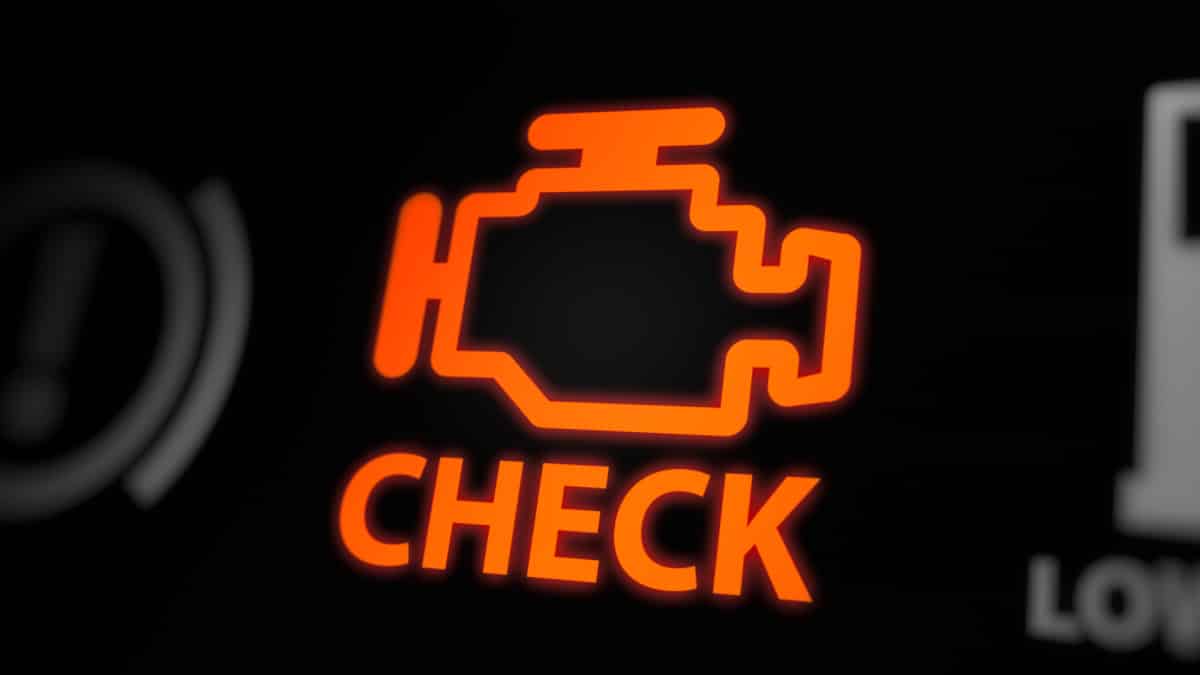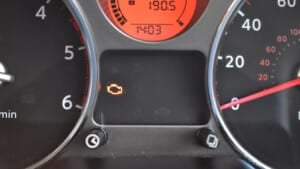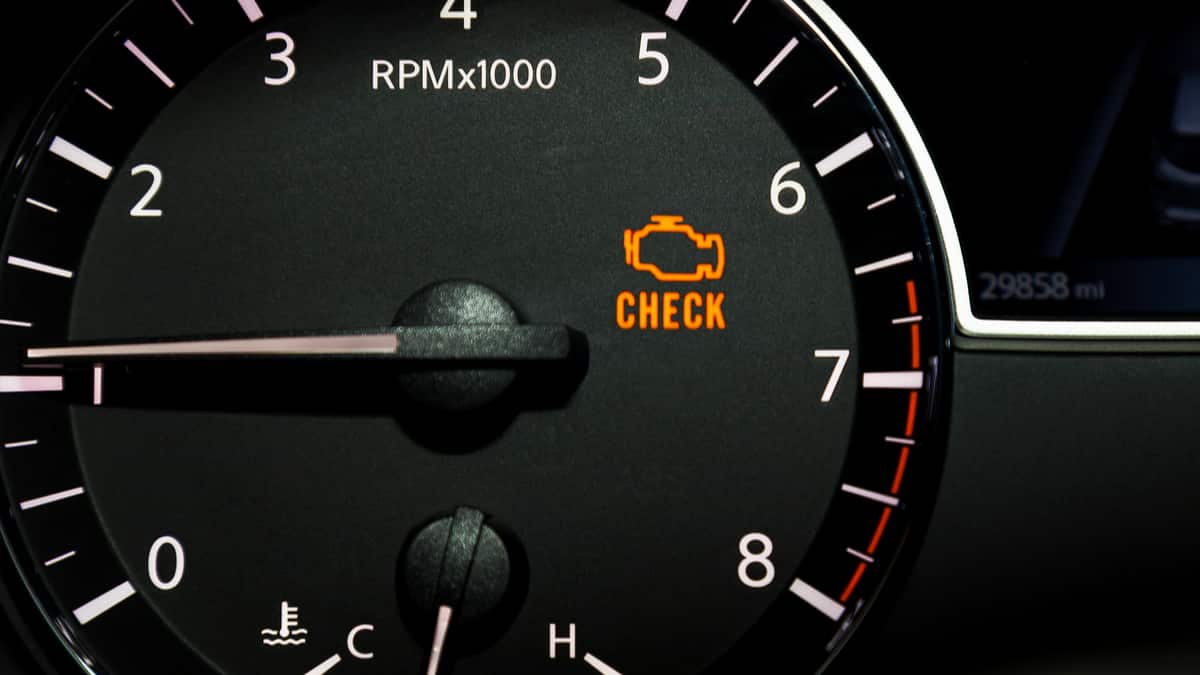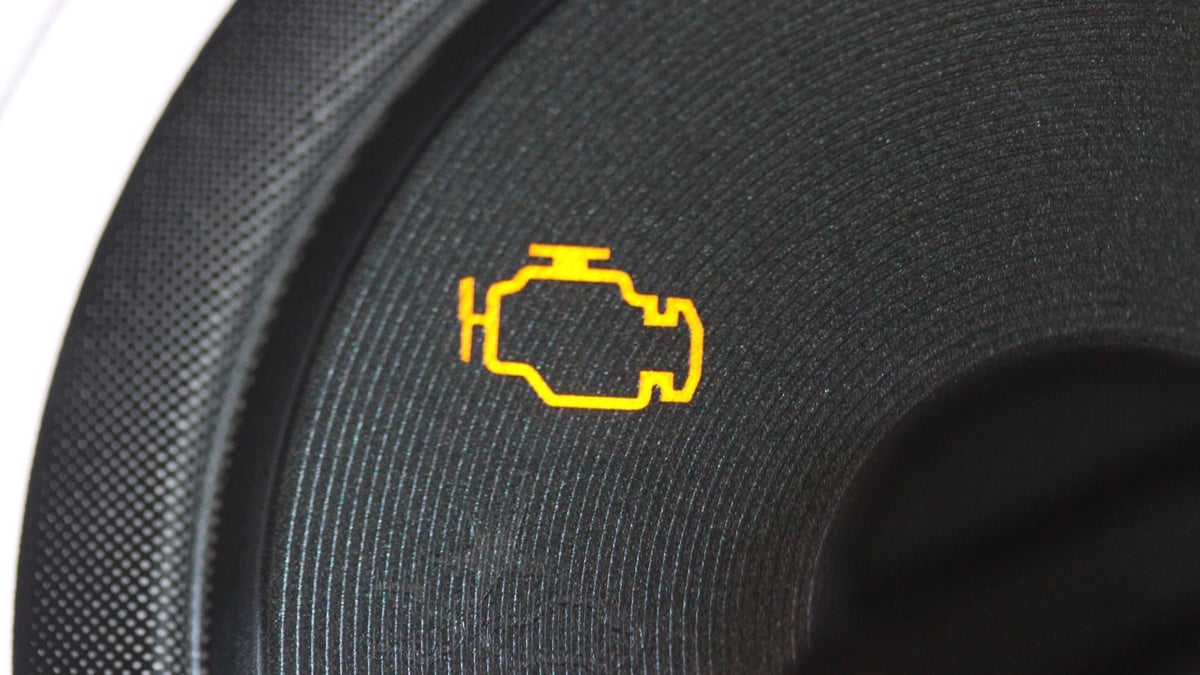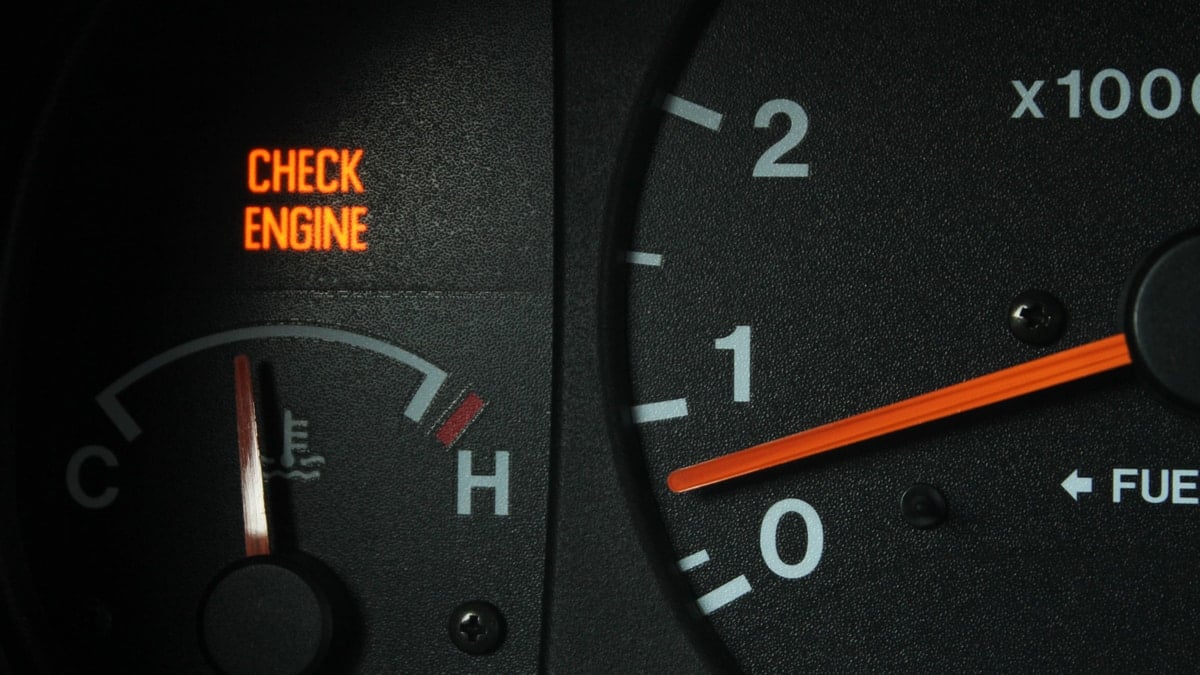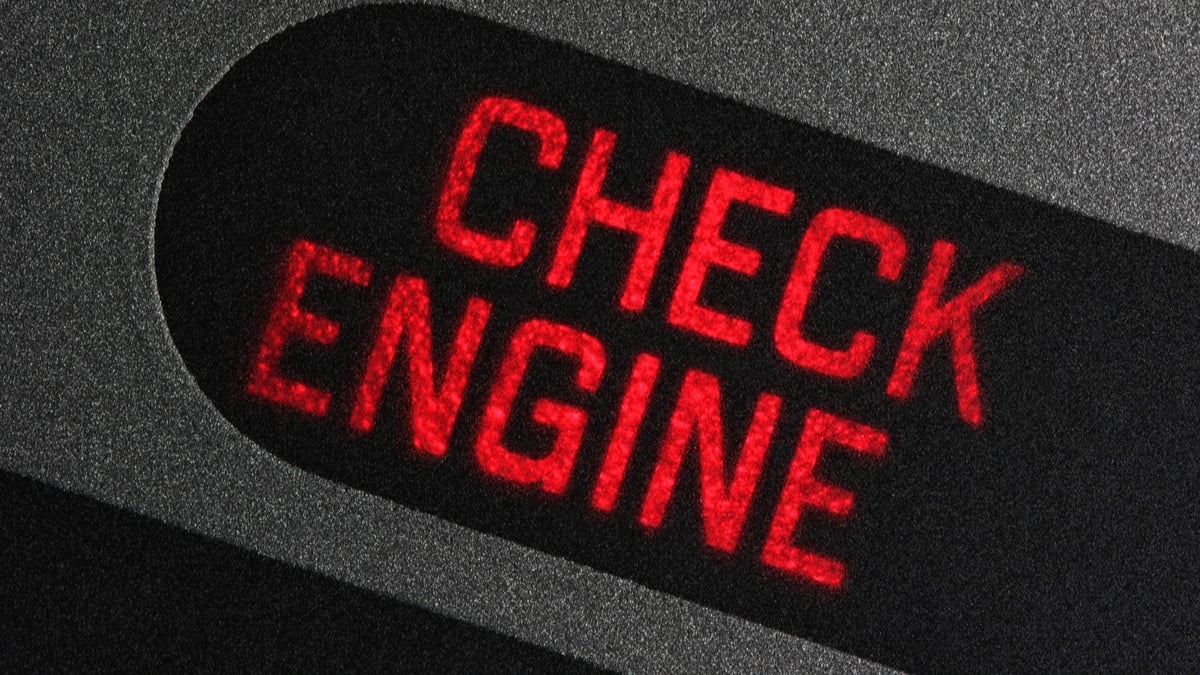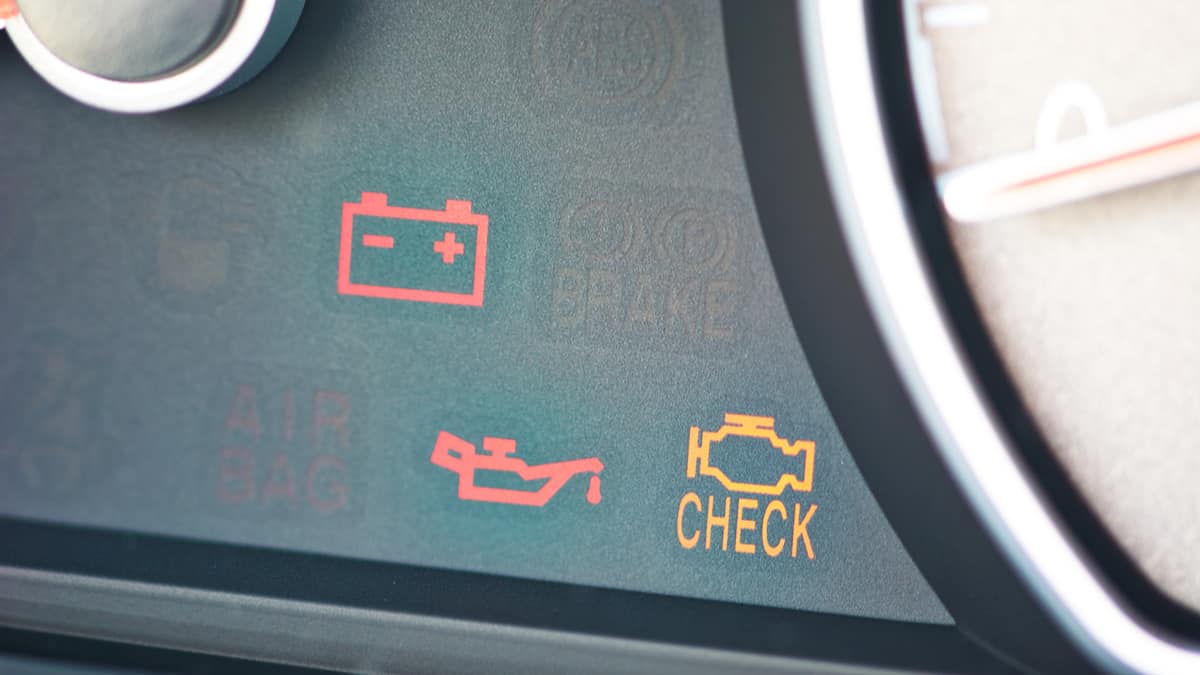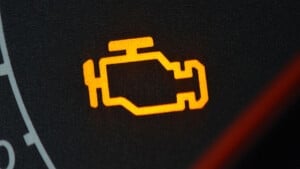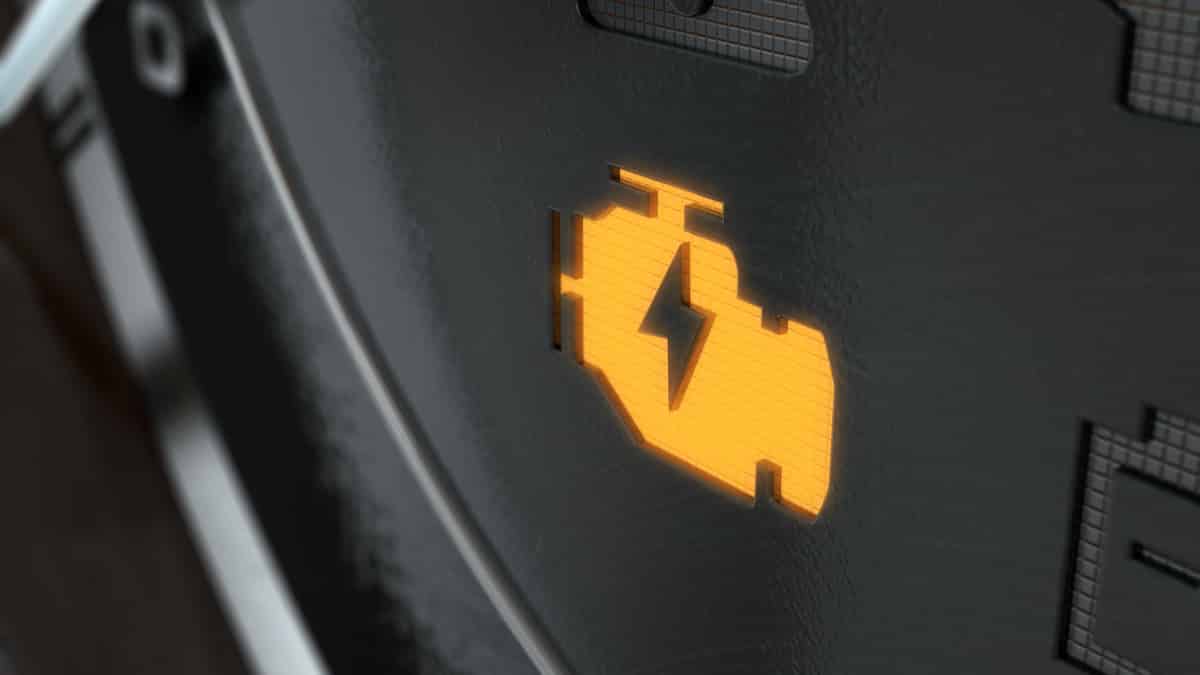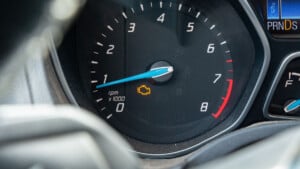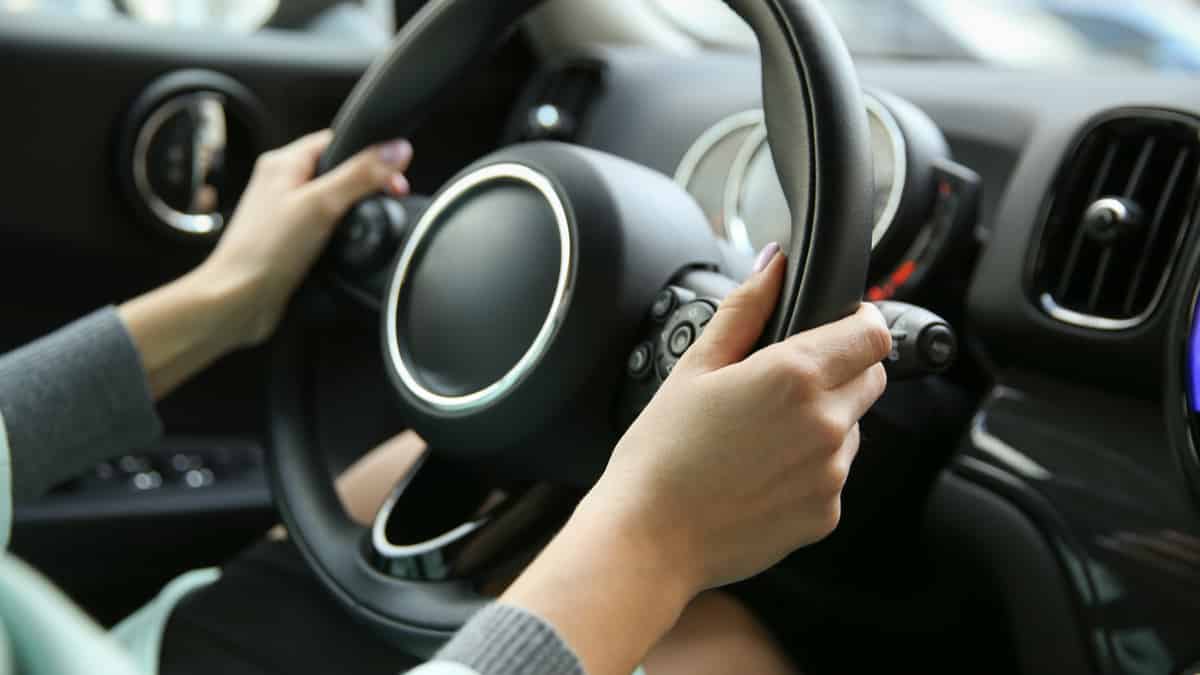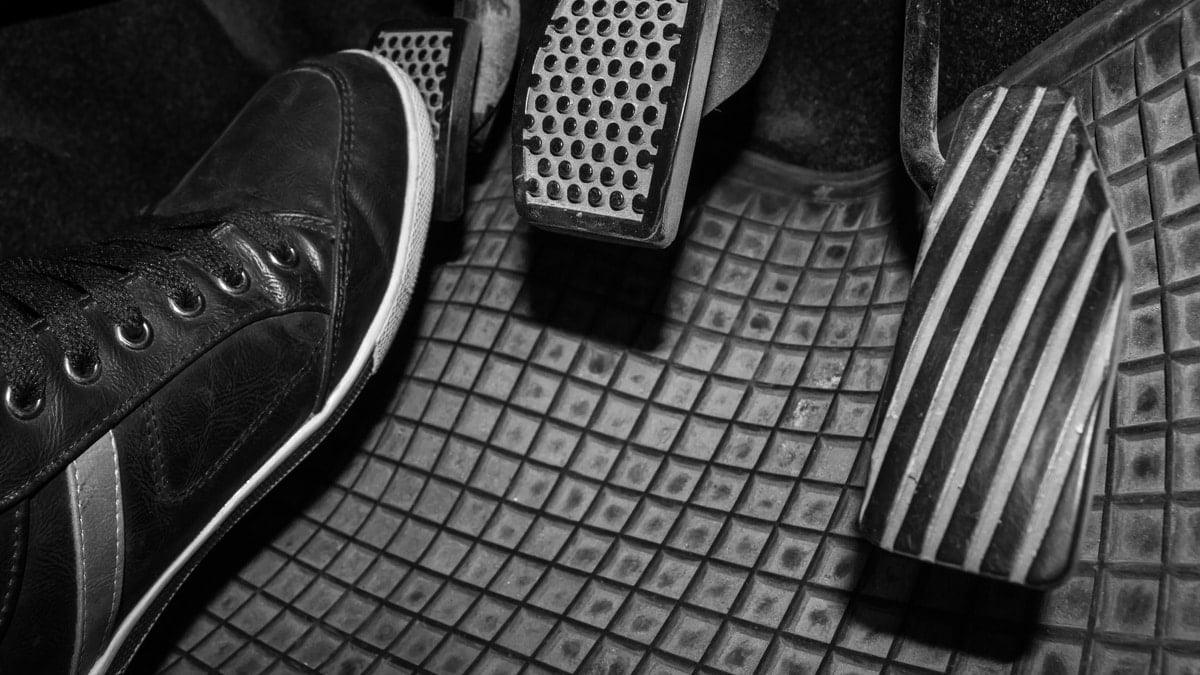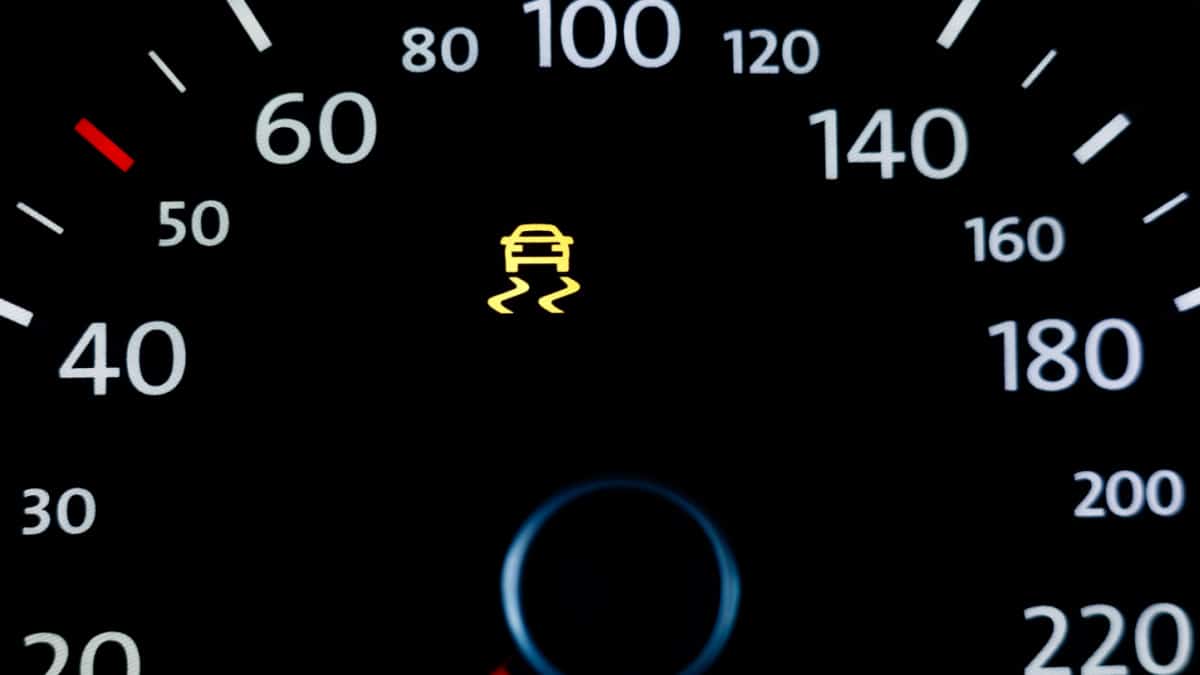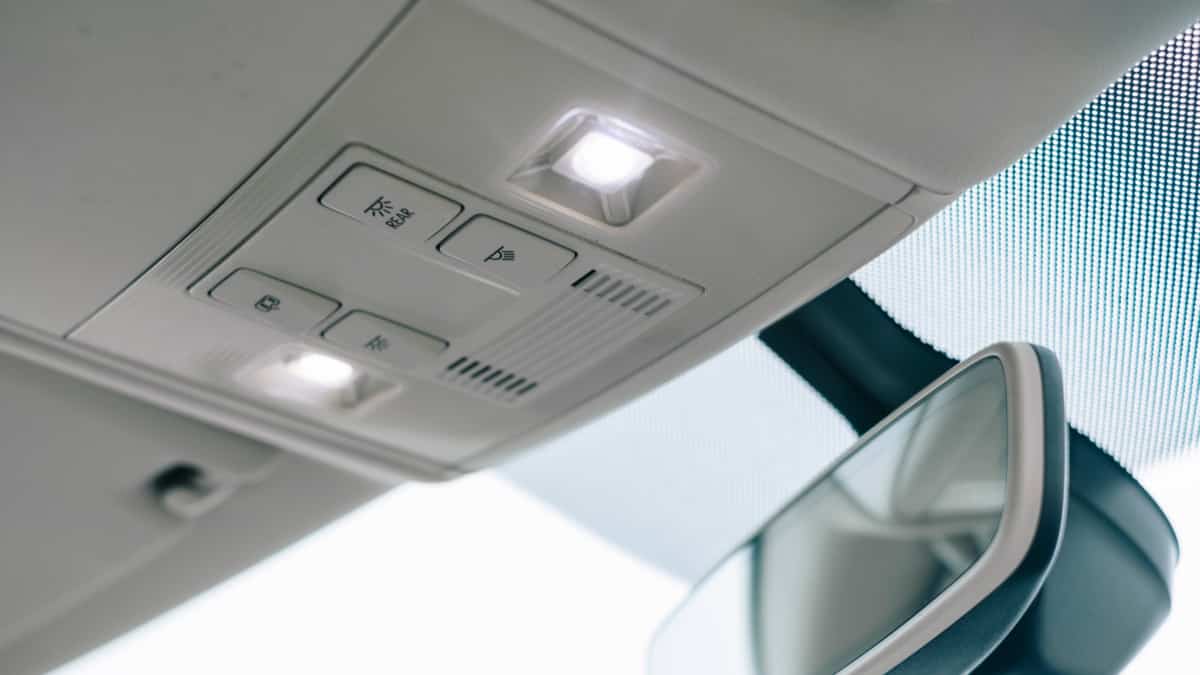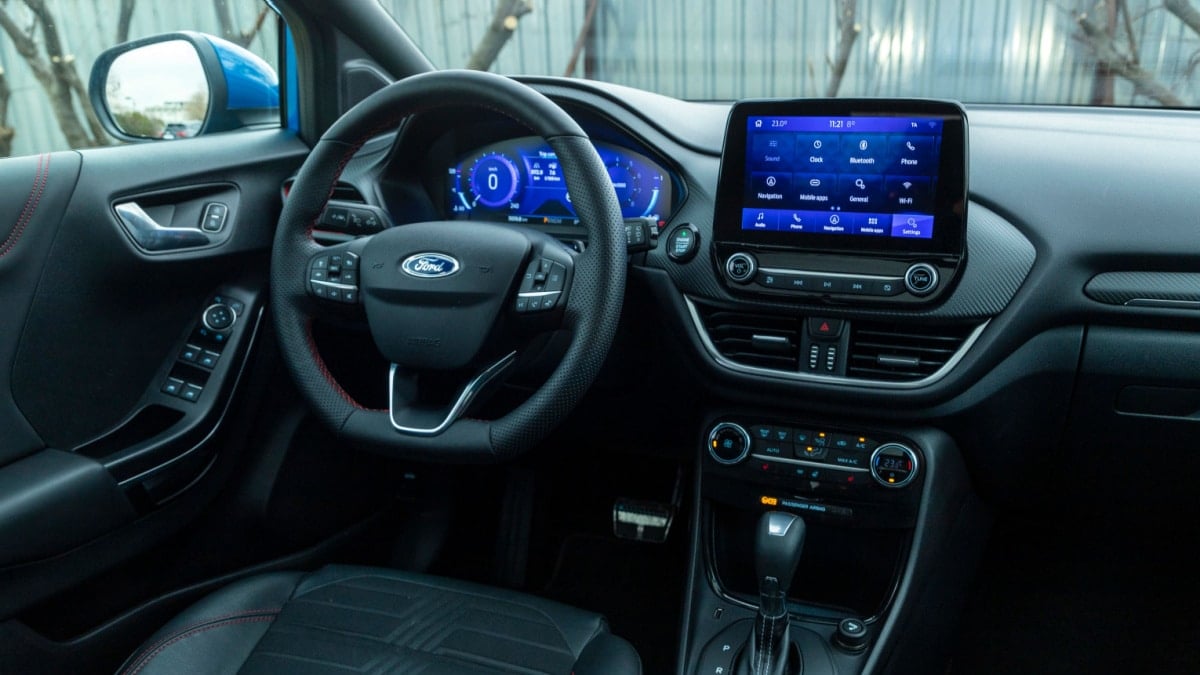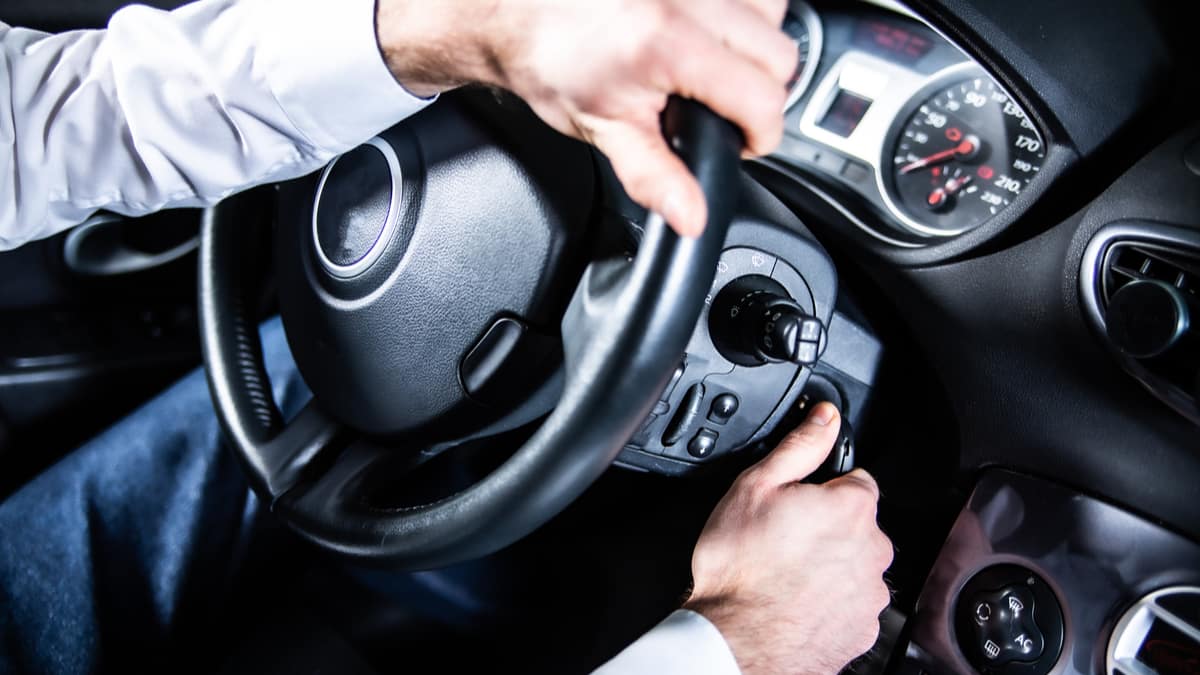When the Check Engine Light comes on, you know it means there’s something wrong with the vehicle. In most cases, the light isn’t going to go off before you fix whatever’s causing the problem. So, should you be worried when the Check Engine Light turned off by itself?
Before you panic, you want to read the possible causes for this to happen. Not only do we look at the most probable causes, but we also discuss what you should do next. At the end of our article, we answer your top Check Engine Light questions.
Why Did My Check Engine Light Turn Off By Itself?
The Check Engine Light can turn off on its own if you have repaired the problem that was causing it. The system is constantly running a self-diagnostic test, checking to see if there are any other faults. If a simple problem has been resolved, the light may disappear from the dashboard.
The self-diagnostic test runs when you start the car. If the systems fail two tests simultaneously, the Check Engine Light comes on. Depending on the code that’s set, it can also go off on its own when the problem is repaired.
Common Reasons Why Your Check Engine Light Turned Off By Itself
While it’s not normal for the light to go off on its own, there are some possible explanations. You may have replaced a loose or defective gas cap or you may have refueled with the engine running. The air-fuel mixture might be corrected, there could be intermittent wiring issues or sporadic engine trouble.
Let’s examine these options in-depth, based on what we have seen as professional mechanics.
1. Loose or Defective Gas Cap
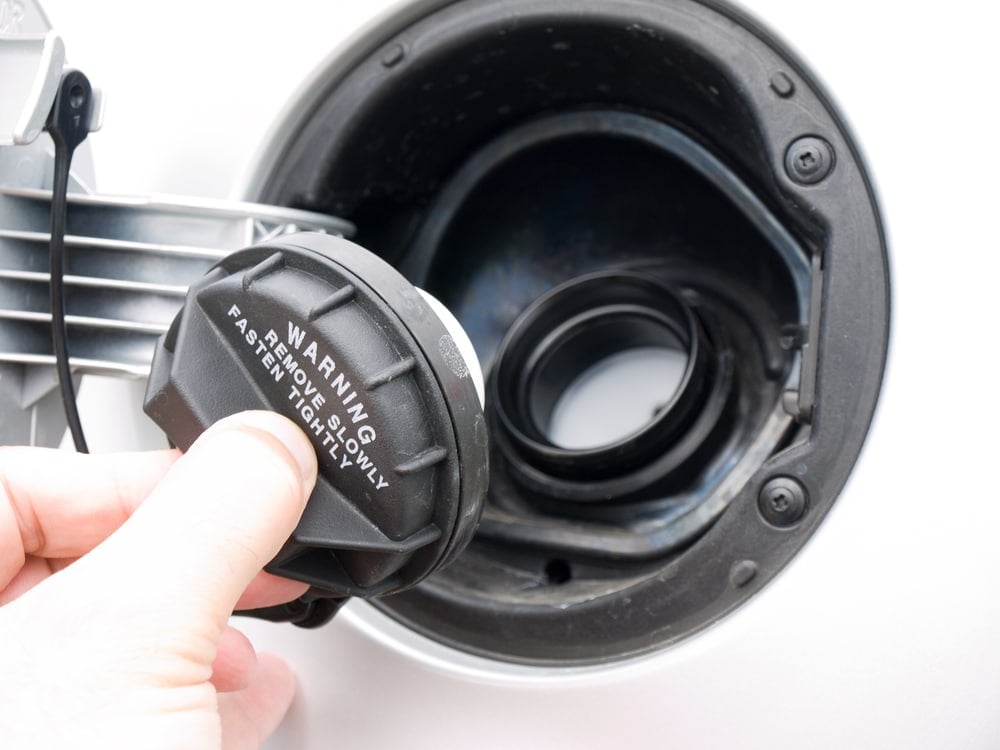
The gas cap is designed to keep contaminants from getting into the fuel system. If you have a loose gas cap, it sends out an alert to the computer, causing the Check Engine Light to come on.
If you’ve tightened up the gas cap after seeing the alert, the warning light could reset on its own after a diagnostic check. It can also turn off on its own if you replace a damaged or broken gas cap with a new one.
2. You Refueled Gas With The Engine Running

There are multiple reasons it’s best to turn off your car before you refuel. Not only is there a heightened risk of a fire with the engine running, but it can also lead to trouble.
When you refill the gas tank with the engine running, the sensors continue to measure pressure. For this reason, drivers occasionally get a Check Engine Light on the dashboard after filling up with the motor running.
However, the opposite can also be true. If there’s something going on with the sensors and refilling the tank temporarily fixes the problem, the light could go out too.
3. Air-Fuel Mixture Slightly Too Rich Or Lean
There has to be a perfectly mixed balance of air and fuel in the combustion chamber. If this air-fuel balance gets slightly off-kilter, the Check Engine Light may come on temporarily.
As soon as the balance returns to normal, the light may turn itself off. However, most of the time, these imbalances lead to a repair that must be performed, possibly with a filter or sensor. You will likely need to reset the trouble codes when the repair is complete.
4. Intermittent Wiring Problems
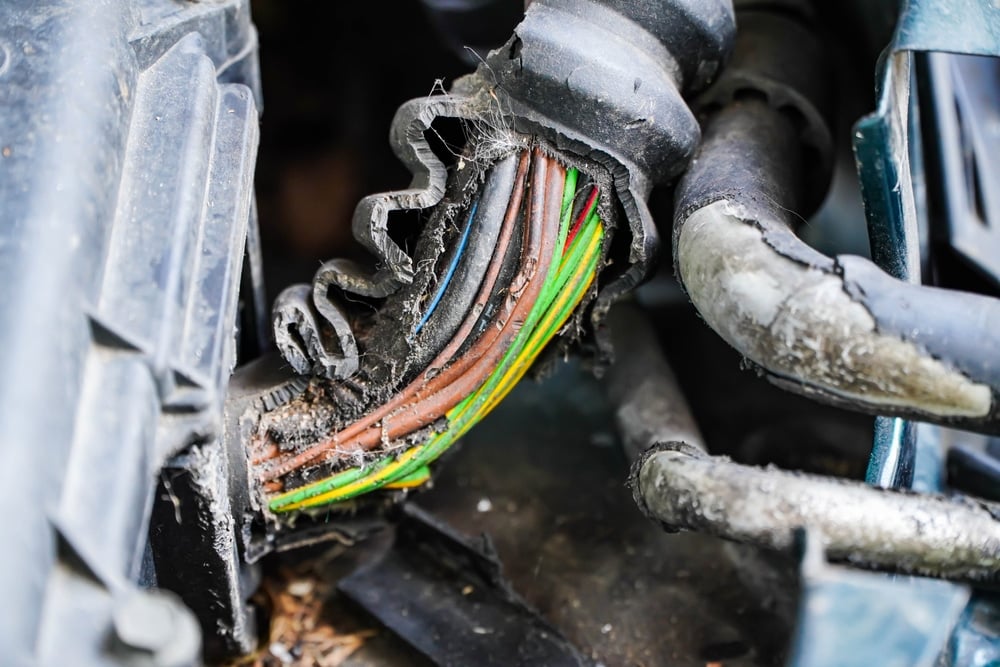
Let’s say that there’s a minor wiring issue that is causing an intermittent disconnection. In this case, the wiring may make a connection sometimes and not others. In this case, it’s possible for the light to turn itself off when the connection is strong.
If there’s a wiring fault, it will probably lead to a bigger issue down the road. For that reason, you will still want to hunt down the electrical problem.
5. Intermittent Engine Component Issues
The same can be said about any intermittent problem. For example, if a pump or sensor fails for a minute and corrects itself, the Check Engine Light may not stay on.
This isn’t as likely as some of the other causes. Typically, when a part starts to fail, it continues to get worse. Plus, not every fault code can reset itself, especially the more severe ones.
What To Do After The Check Engine Light Turned Off By Itself?
You may think it’s okay to ignore the problem once the Check Engine Light goes off, but that’s not wise. There was a problem at some point that caused the light to come on. It’s best for you to figure out what’s going on before it leads to bigger problems.
Here are some steps we recommend.
1. Read Trouble Codes

When a fault occurs with a vehicle, it sets a diagnostic trouble code (DTC) in the computer. You can read these codes with a compatible scanner to see what’s going on. If you don’t have a code scanner, many auto parts stores will also read the codes at no charge.
The problem is that these codes aren’t that easy to understand. Even if you know what the code means, many of them have multiple fixes that could work, which is why diagnostics are needed. We recommend using our online trouble code library to get started.
2. Repair The Issues
Once you know what’s wrong, it’s time to fix it. Some of the repairs can be simple, such as replacing the gas cap.
If you can perform the repair yourself, you will save a lot of money by avoiding the professional labor fees. Of course, if you fix your car on your own, you may need to account for a little extra time, especially if you don’t have sophisticated tools and equipment. If you don’t feel comfortable performing the fix, move on to step number four.
3. Reset The Trouble Codes
After the fix is performed, you must reset the codes. If the light has come back on, you may need to drive the car for a little until the self-diagnostic system recognizes the difference.
If the light doesn’t reset or you don’t want to wait, you can reset the codes yourself. Simply use your compatible code scanner to reset the system.
LEARN MORE: Will the Check Engine light Reset Itself After Repair?
4. Seek Help From A Professional
There’s plenty of reason to believe that you may be able to resolve the issues on your own. You don’t always need to have the same level of experience that we do to work on your vehicle.
However, if it feels too overwhelming to you or you aren’t sure what steps to take next, reach out to a professional mechanic. You don’t want to ignore the problems and have them get worse.
Is It Safe To Drive With Check Engine Light On?
If the Check Engine Light is solid, you may be able to continue driving. Depending on what the problem is, there may be a small amount of time you can wait before getting the repair. The only way to know this is to check the codes and determine what’s wrong first.
However, there are two downsides to driving with the Check Engine Light on. First, you won’t know if another problem arises during that time. If something serious happens, you will be oblivious since the light can’t come on again. Second, if there’s a problem that leads to other wear, you could create more damage in the long run. For example, if you have bad spark plugs and you continue driving, you could cause damage to the catalytic converter. This is an expensive repair you want to avoid.
On the other hand, if the Check Engine light is blinking, you have a serious problem with your hands. You shouldn’t drive any further with this light blinking. Either repair the problem or have the car towed to a mechanic.
Is it serious when my check engine light turns on and off?
In most cases, there’s nothing serious to worry about. If the light turned itself off, the problem has probably worked itself out. However, it doesn’t hurt to check the codes and see what was wrong. You can repair the issue before it becomes too serious, especially if it’s something intermittent.
Why did my check engine light turn off but still have codes?
A record of the codes can be found in the computer until you reset them. If the fault isn’t bad enough to keep the Check Engine Light on, you may be able to read the codes anyway. We recommend fixing whatever faults you see and erasing the codes to ensure everything is clear.
How far do you have to drive to reset the check engine light?
When you turn on the vehicle, the system does a self-check that may cause the light to go off after a repair. Otherwise, you may need to drive a particular distance, outlined by the manufacturer, to get it to go off. The easier solution is to use a compatible code scanner to reset the system and the light.
How long does it take the check engine light to go off?
It depends on the car you are driving and what caused the light to come on. In some cases, one cycle of the ignition will cause the light to go off after a self-check. Other times, you may need to drive a certain amount of miles or make a specific amount of successful cycles. The best solution is to use a compatible code scanner to turn off the light and reset the system.
The first sign of the Check Engine Light is enough to make anyone’s heart sink. If the light goes back out on its own, you may breathe a sigh of relief. Before you rejoice too quickly, keep in mind that something triggered that light in the first place. There’s some fault or malfunction that causes the computer to alert you.
It’s best not to ignore these warnings but to perform some diagnostics. Even if the light isn’t on, you may need to repair something to keep the car running at its best in the future. Take care of your vehicle today and it will provide you with service tomorrow.
Categories: Troubleshooting, Warning Lights
